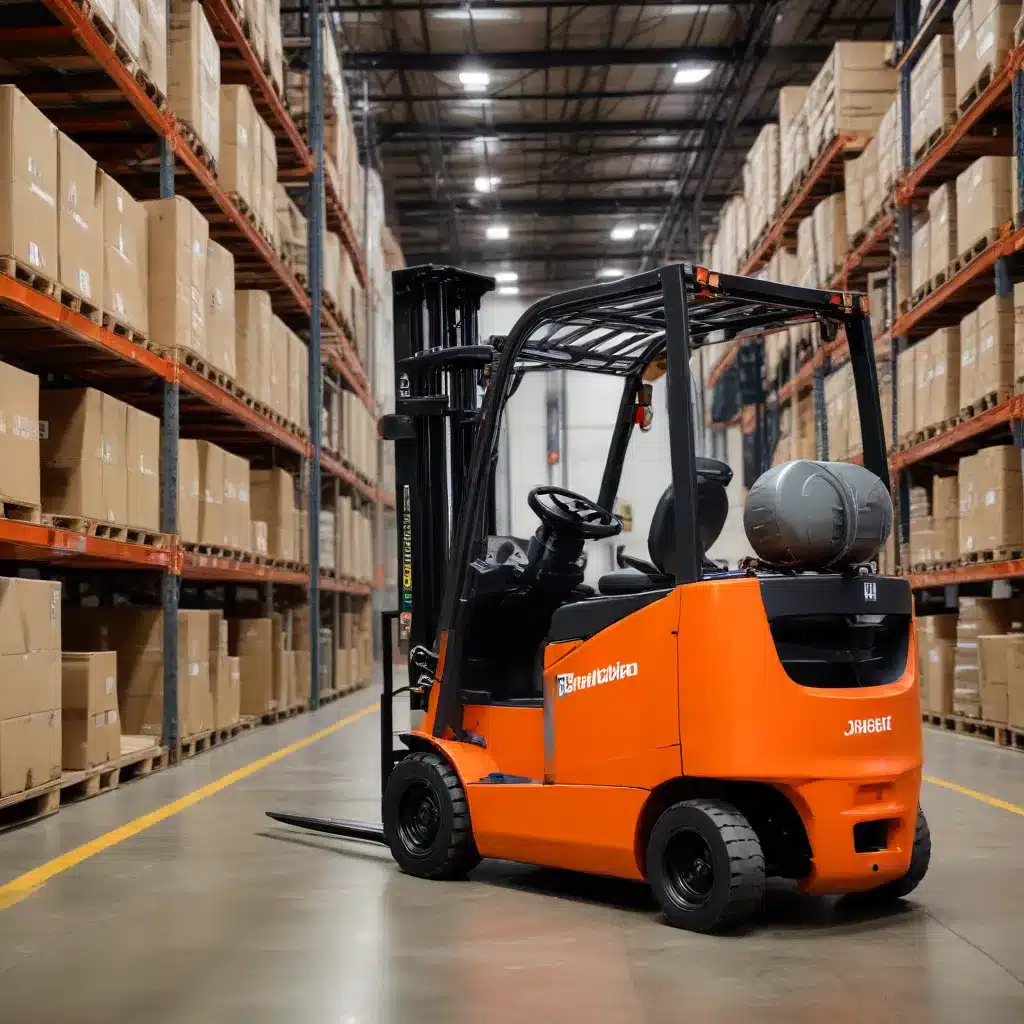
The Rise of Electric Forklifts: Powering the Future of Materials Handling
The materials handling industry is undergoing a remarkable transformation, driven by the rapid advancement of electric forklift technology. As warehouse operations strive to enhance productivity, reduce environmental impact, and optimize cost-efficiency, the shift towards electrification is becoming increasingly prevalent.
Forklift buyers and renters now have a diverse array of power source options to choose from, each offering unique benefits to cater to the specific needs of their operations. While internal combustion engines (ICE) powered by fuels like gasoline, diesel, or liquid propane gas (LPG) have long been the go-to choice for high-capacity applications, the industry is witnessing a surge in the adoption of electric forklifts.
Exploring the Advantages of Electric Forklifts
Electric forklifts have emerged as a game-changing solution, providing a range of advantages that are increasingly attractive to warehouse and logistics professionals. These advantages include:
Emissions-Free Operation
One of the most significant benefits of electric forklifts is their emissions-free operation. Unlike their ICE counterparts, electric models produce no harmful emissions during use, contributing to a cleaner and more sustainable work environment. This makes them an ideal choice for indoor applications or facilities with stringent environmental regulations.
Consistent Power Delivery
Electric forklifts powered by lithium-ion batteries offer consistent power delivery throughout the entire operation, ensuring consistent performance until the battery is fully depleted. This consistent power output can be particularly beneficial for multi-shift operations where uninterrupted productivity is crucial.
Reduced Maintenance Requirements
Lithium-ion battery-powered electric forklifts are virtually maintenance-free, eliminating the need for regular maintenance tasks associated with lead-acid batteries or ICE models. This translates to reduced downtime, lower operating costs, and a more efficient materials handling operation.
Faster Charging Times
Compared to traditional lead-acid batteries, lithium-ion batteries used in electric forklifts charge significantly faster, enabling quicker turnaround times and minimizing operational disruptions. This feature is especially valuable for operations that require frequent battery changes or have limited charging infrastructure.
Improved Ergonomics
Electric forklifts often boast advanced ergonomic features that enhance operator comfort and productivity. Features such as adjustable seats, improved visibility, and intuitive controls can help reduce operator fatigue and improve overall job satisfaction.
Overcoming the Challenges of Electric Forklift Adoption
While the benefits of electric forklifts are undeniable, the transition from traditional fuel-powered models can present some challenges that must be addressed:
Upfront Cost Considerations
One of the primary hurdles faced by warehouse operators is the higher upfront cost of electric forklifts compared to their ICE counterparts. However, this initial investment can be offset by lower operating and maintenance costs over the long term, resulting in a favorable return on investment (ROI).
Charging Infrastructure Requirements
Implementing the necessary charging infrastructure for a fleet of electric forklifts can require significant planning and investment. Factors such as available power supply, charging station placement, and charging times must be carefully considered to ensure seamless operations.
Operational Range Limitations
Depending on the specific application and usage patterns, the operational range of electric forklifts may be a concern. Warehouse managers must carefully assess their power requirements and ensure that the selected electric models can meet the demands of their materials handling operations.
Unlocking the Full Potential of Electric Forklifts
To overcome these challenges and unlock the full potential of electric forklift technology, warehouse operators can implement a comprehensive approach that addresses key considerations:
Conducting a Thorough Needs Assessment
Before making the switch to electric forklifts, it’s crucial to conduct a detailed assessment of your warehouse’s specific needs, including factors such as load capacities, operational hours, and power requirements. This will help you identify the most suitable electric forklift models and charging infrastructure that align with your operational demands.
Investing in Charging Infrastructure
Developing a robust charging infrastructure is essential for the successful integration of electric forklifts. This may involve upgrading electrical systems, installing dedicated charging stations, and implementing efficient charging management protocols to ensure uninterrupted productivity.
Exploring Innovative Financing Options
To address the higher upfront costs of electric forklifts, warehouse operators can explore innovative financing solutions, such as leasing programs or government incentives. These options can help bridge the gap and make the transition to electric materials handling more accessible.
Prioritizing Operator Training and Engagement
Successful electric forklift implementation requires a well-trained and engaged workforce. Provide comprehensive training programs to equip operators with the knowledge and skills to effectively utilize the advanced features and capabilities of electric forklifts, ensuring optimal performance and safety.
Embracing Technological Advancements
The electric forklift landscape is rapidly evolving, with manufacturers continuously introducing new technologies and features to enhance efficiency, safety, and sustainability. Stay informed about the latest industry trends and innovations, and partner with reputable forklift providers that can offer the most advanced electric solutions to future-proof your warehouse operations.
Forging a Sustainable Future with Electric Forklifts
As the warehouse and logistics industry moves towards a more sustainable future, the adoption of electric forklifts is poised to play a pivotal role. By embracing the benefits of this transformative technology, warehouse operators can unlock a new era of enhanced productivity, reduced environmental impact, and cost-effective materials handling.
Through a strategic and well-executed approach to electric forklift integration, warehouse operations can position themselves at the forefront of the industry, leading the way towards a greener, more efficient, and technologically advanced materials handling landscape. The future of warehouse electrification is here, and the time to seize the opportunity is now.
To explore the latest electric forklift models and unlock the full potential of your materials handling operations, visit Forklift Reviews for comprehensive reviews, safety guidelines, and industry insights.

